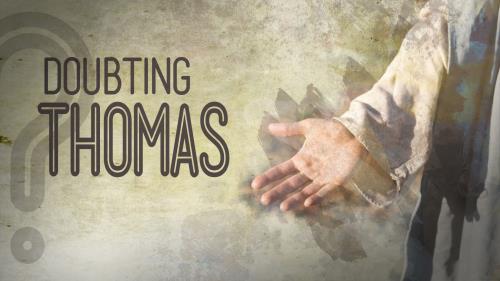-
The Active Life Series
Contributed by Curry Pikkaart on Nov 28, 2017 (message contributor)
Summary: How much time do you spend in front of the mirror? How often do you look in the mirror? What do you do with what you see there?
“Faith That Works: The Active Life”
James 1:19-27
A young pastor’s wife came to her husband one day with a look of obvious concern. He lovingly inquired as to the problem. She replied that she had really been struggling lately with the sin of vanity. “How’s that?” asked her husband. She said, “Well, every morning when I get up and look in the mirror, I just can’t help thinking how beautiful I am and then wondering how all those other women, who aren’t as beautiful as I am, feel.” Her loving, pastor husband calmly responded, “My dear, that’s not a case of vanity so much as it’s a simple case of mistaken identity!”
How much time do you spend in front of the mirror? How often do you look in the mirror? What do you do with what you see there? James, in discussing discipleship, uses the mirror as his key image. In trying to encourage the persecuted believers to be faithful, loyal disciples, James reminds them of the keys to discipleship. And those keys remain the same for us today.
The first key to discipleship is to BELIEVE THE WORD. We live in an age when people love to discuss, debate, and debunk the Word, rather then believe it. Yet James says, verse 21: “...humbly accept the word planted in you, which can save you.” Believe it; accept it as true. It is already in you so with meekness let it take root, and give it room to grow. James had become convinced of the necessity of belief. So had the disciples. As John wrote his Gospel, he repeatedly hammered home the concept of belief. The gospel of John, in fact, is called the gospel of belief; his theme is “BELIEVE AND SEE.” Consider these verses, from the beginning, middle, and end of Johns’ Gospel: (1:7) “He came as a witness to testify concerning that light, so that through him all men might believe.” (14:11) “Believe me when I say that I am in the Father and the Father is in me; or at least believe on the evidence of the miracles themselves.” (20:31) “But these are written that you may believe that Jesus is the Christ, the Son of God, and that by believing you may have life in his name.” Accept Jesus’ words as true, and see what happens. This certainly smacks at our tendency to dissect, discuss, and dismantle the Word, especially when it says something we don’t like or understand. But remember that Jesus never asked, “Do you agree with me?”, or “Does this sound reasonable to you?” He just said “Follow me.” “Obey.”
James point is that FAITH IS A CHOICE, NOT A DEBATE. We simply need to decide our attitude towards the Word. We have two choices:
First - DO NOT BELIEVE. I can live life in disbelief - and if I’m wrong, then I’ll suffer the eternal consequences. Or, second, DO BELIEVE. If I’m wrong, I will at least have lived an abundant life. And if I’m right, this Word will save me. So I can spend my life waiting for proof to believe or I can believe and spend my life being the proof! So James urges us to get rid of the evil around us by humbly accepting the Word - believe the Word already planted in us - and be saved from that evil.
So why are you here this morning? To learn a new truth that you can discuss, debate, dissect? To grab on to some morsel of truth you can then argue with fellow students or coworkers? To mark the Word or to let the Word mark you? Are you going to ponder or believe? Jay Kessler put this whole idea of belief in perspective for me. Someone once asked Jay, former President of Taylor University, if he really believed that God could make a fish big enough to swallow a man - that in a day of such scientific knowledge and advancement, did he really believe this to be true? Jay replied, “Let me tell you, I not only believe that He can make a such a fish, the God who made the sun and the moon and the stars, if he wanted to, could air condition and carpet the fish!” Believe in the Word!
The second key to discipleship is to APPLY THE WORD. James observed that many people, even well meaning people, listen intently to the Word - they may even diligently study it and be anxious to hear it preached and taught; but they only deceive themselves. WE MUST NOT DECEIVE OURSELVES. We may hear the Word and feel better; perhaps we even look down in pride on others who don’t spend as much time in the Word we do; maybe we even feel uncomfortable if we miss church or Sunday School on a given Sunday. But what do we do with what we hear? If the Word says to repent, do we repent? If it instructs us to tithe, do we tithe? If it commands us to forgive and to love, do we forgive and love?

 Sermon Central
Sermon Central



